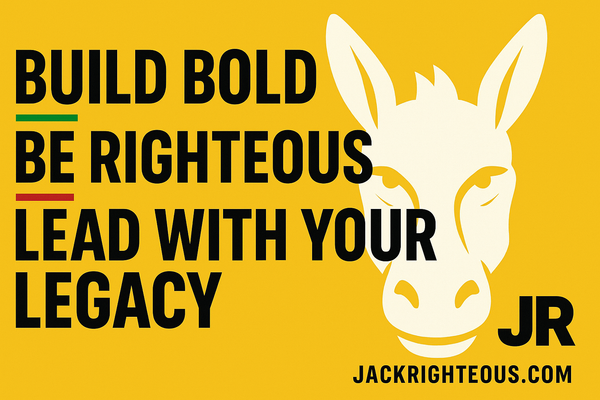AI Music Creators: Defining Music, Musicianship, and Legal Best Practices
Gary Whittaker
The Debate: AI Music vs. Traditional Musicianship
After a recent experience on Reddit, I gained firsthand insight into the heated debate surrounding AI music. My post about AI-generated music sparked backlash from traditional musicians, who argued that AI creators undermine the hard-earned skills and years of practice required to create "real" music. This discussion highlighted deep-rooted concerns about how AI impacts the music industry. You can read more about that experience and the lessons learned here.
This tension is understandable. Musicians feel that AI tools give creators an unfair advantage, similar to how performance-enhancing drugs are viewed in sports. As AI music creators, it's essential to navigate this landscape carefully, addressing both criticism and legal responsibilities while maintaining authenticity with your audience.
What Is Music?
Music is organized sound meant to express emotion, communicate ideas, or entertain. Throughout history, technology has continuously shaped how music is created—from electric guitars to synthesizers and digital audio workstations (DAWs). AI is the latest tool in this evolution. Whether created by traditional instruments, software, or AI, music remains focused on emotion and storytelling through sound.
What Is a Musician?
Traditionally, a musician is someone who plays instruments, composes, or performs music, requiring technical skill and practice. However, the definition has expanded to include those who use digital tools to create music. While AI music creators may not always fit the traditional definition, they are still integral to the creative process, making decisions about structure, sound, and arrangement.
AI Music Creators and Legal Requirements
As AI-generated music gains traction, it's crucial to stay compliant with legal guidelines to avoid complications down the road.
California's AI Transparency Act (SB 942)
In California, the Artificial Intelligence Transparency Act (SB 942) mandates that AI-generated content—including music—must be clearly labeled as such. This law ensures transparency by requiring visible disclosures in both the content and its metadata. The labels must include information about when and how the content was created and the tool used to create it(Senator Josh Becker)(LegiScan).
California Assembly Bill 3211 (AB 3211)
Similarly, California Assembly Bill 3211 (AB 3211) demands that platforms display AI-generated content labels prominently. Supported by tech giants like OpenAI, Adobe, and Microsoft, this bill underscores the importance of transparency and consumer trust in AI-generated media(Senator Josh Becker)(LegiScan).
European Union's AI Act
The European Union’s AI Act imposes strict regulations for labeling and transparency of AI-generated content within the EU. While still evolving, this legislation emphasizes the importance of proper labeling to protect consumers and maintain trust(Digital Watch Observatory).
The Importance of Proper Labeling
Properly labeling AI-generated music isn't just a legal necessity—it builds trust with your audience. Transparency shows integrity and helps avoid confusion or accusations of deception. By following best practices for labeling, you ensure your music won't be flagged or removed in regions with strict regulations.
Adhering to these guidelines also demonstrates professionalism. Implementing proper labeling now is easier than retroactively correcting it later, especially as more regions adopt similar laws. Being upfront about your use of AI fosters a sense of authenticity and respect with your listeners.
Should AI Creators Follow These Guidelines If Not in California or the EU?
Even if you're not located in California or the EU, it's wise to follow these guidelines:
- Global Standards Are Emerging: Labeling AI-generated content is becoming a global conversation. Other countries are likely to introduce similar regulations.
- Future-Proofing Your Work: By adopting these practices now, you avoid potential legal issues as laws evolve.
- Building Trust: Transparency with your audience strengthens your reputation as an authentic and responsible creator.
- Platform Compliance: Global platforms may implement stricter requirements for AI-generated content, affecting distribution regardless of your location.
Being proactive in labeling your content helps you stay ahead of regulatory changes and maintains the trust of your audience.
Navigating Criticism
Many traditional musicians view AI creators as undermining the time and effort they've invested in mastering their craft. These criticisms often stem from fear that AI will replace human musicians. It's important to remain respectful of this perspective. Instead of engaging in unproductive arguments, focus on transparency and clearly defining your role.
- Use Appropriate Terminology: Consider referring to yourself as a "music creator" or "producer" rather than a "musician" if you don't have traditional training.
- Respect the Craft: Acknowledge the skill and dedication required in traditional musicianship.
- Focus on Your Contribution: Highlight how AI tools are used creatively to produce music, emphasizing your role in shaping the final product.
By approaching the conversation thoughtfully, you can bridge the gap between traditional and AI-driven music creation.
Coexistence in Music
Both traditional musicians and AI creators have a place in today's evolving music industry. AI isn't replacing musicians—it's a tool that adds new dimensions to the creative process. By labeling AI-generated content properly and respecting the craft of musicianship, AI creators can foster a more productive dialogue and contribute responsibly to the future of music.
Conclusion
Navigating the world of AI music creation involves understanding both the creative and legal landscapes. Proper labeling of AI-generated music is crucial—not only for compliance with laws like California's AI Transparency Act and the EU's AI Act but also for building trust with your audience.
Even if you're not in a region with specific AI labeling laws, adopting these practices is considered good practice. It helps you avoid potential legal issues and demonstrates authenticity and honesty with your listeners.
By respecting traditional musicianship, staying transparent, and adhering to legal guidelines, AI music creators can responsibly contribute to the music industry and help shape its future.
Ready to Launch or Level Up Your AI Music Journey?
🔹 Start Here – The Suno AI Creator Guide:
https://jackrighteous.com/pages/suno-guide-getting-started
🔹 Learn to Brand with Sound – GET JACKED Into Suno Branding:
https://jackrighteous.com/pages/start-ai-music-branding
🔹 Unlock the Full Anthem Path – GET RIGHTEOUS System Access:
https://jackrighteous.com/pages/get-righteous-anthem-guide
(Requires one of the following:
– https://jackrighteous.com/products/get-jacked-full-pro-kit
– https://jackrighteous.com/products/get-jacked-pro-ai-music-kit
– https://jackrighteous.com/products/sanctuary-digital-download-support-the-album-build)
